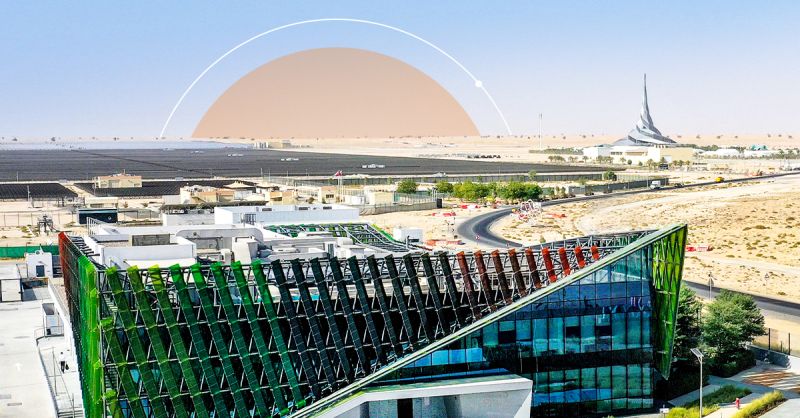Dubai, UAE, 30 July 2024: HE Saeed Mohammed Al Tayer, MD & CEO of Dubai Electricity and Water Authority (DEWA), announced the completion of DEWA’s pilot Virtual Power Plant (VPP) project, the first of its kind in the region. This project is one of DEWA’s pioneering initiatives to revolutionise the management of Distributed Energy Resources (DERs) and enhance energy sustainability. Al Tayer emphasised the importance of a resilient distribution network in ensuring a reliable and sustainable energy supply, crucial for accelerating the achievement of net zero by 2050.
The VPP utilises advanced digital technology, including aggregation, orchestration, Artificial Intelligence (AI) forecasting, and optimisation, to integrate and control various types of DERs, supporting the smart grid. Al Tayer noted that DEWA is currently testing the VPP using a digital twin of the electrical network to evaluate its performance as a potential digital technology enabler for providing large-scale system flexibility in energy transmission and distribution. DEWA has identified and aggregated potential sites on the network to enhance operational efficiency and reliability.
“We leverage innovation, research, our smart grid, and the latest disruptive technologies to ensure energy security and sustainability in line with the highest global standards. This supports the Dubai Clean Energy Strategy 2050 and the Dubai Net Zero Carbon Emissions Strategy 2050 to achieve 100% clean energy production capacity by 2050. Our commitment to enhancing the UAE and Dubai’s competitiveness in the energy sector involves reshaping and digitising utilities, as well as consolidating DEWA’s position as a leading global utility,” said Al Tayer.
Waleed Bin Salman, Executive Vice President of Business Development and Excellence at DEWA, stated that DEWA’s Research and Development (R&D) Centre has shared knowledge of the VPP project at eight international scientific conferences and in peer-reviewed journals. This aligns with DEWA’s efforts to exchange successful experiences with stakeholders domestically and internationally. DEWA has conducted a comprehensive techno-economic feasibility study for the widespread deployment of the VPP on its grid, defining key use cases for its distribution and transmission networks, and plans to implement these on a larger scale.
DEWA’s VPP is a smart network and digital platform that connects various distributed small and medium-scale DER units, including photovoltaic solar systems, battery storage systems, electric vehicle charging stations, and other flexible loads. This connectivity allows DERs to support network operations and maximise their value to the grid operator and end customers by providing grid services such as peak shaving, PV oversupply management, power factor correction, frequency regulation, energy balancing, and renewable firming.
The R&D Centre has implemented the VPP by connecting real physical assets and managing them as a single mixed portfolio of generation and load connected to the grid. Through the VPP, DEWA has integrated the following DERs: Electric Vehicles at the R&D Centre with a total consumption of 132 kW; Two Battery Energy Storages with Sodium Sulfur (NAS) and Lithium-ion (Li-ion) technologies, with a combined total power capacity of 2.41 MW and total energy capacity of 15.81 MWh; a Chiller system at the R&D Centre representing flexible loads with a total power consumption of 390 kW; an Outdoor Testing Facility at the R&D Centre with a 12 kW PV Inverter; Residential PV inverters of 9 kW; a Smart Grid Station with a 200 kW PV Solar inverter; a 120 kW Battery Energy Storage; and EV charging stations at the Smart Grid Station with 44 kW. The total flexibility provided by the VPP in this pilot project is approximately 3.3 MW.




























